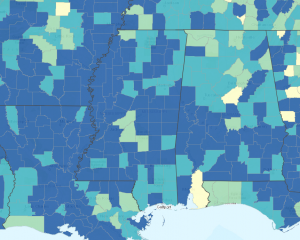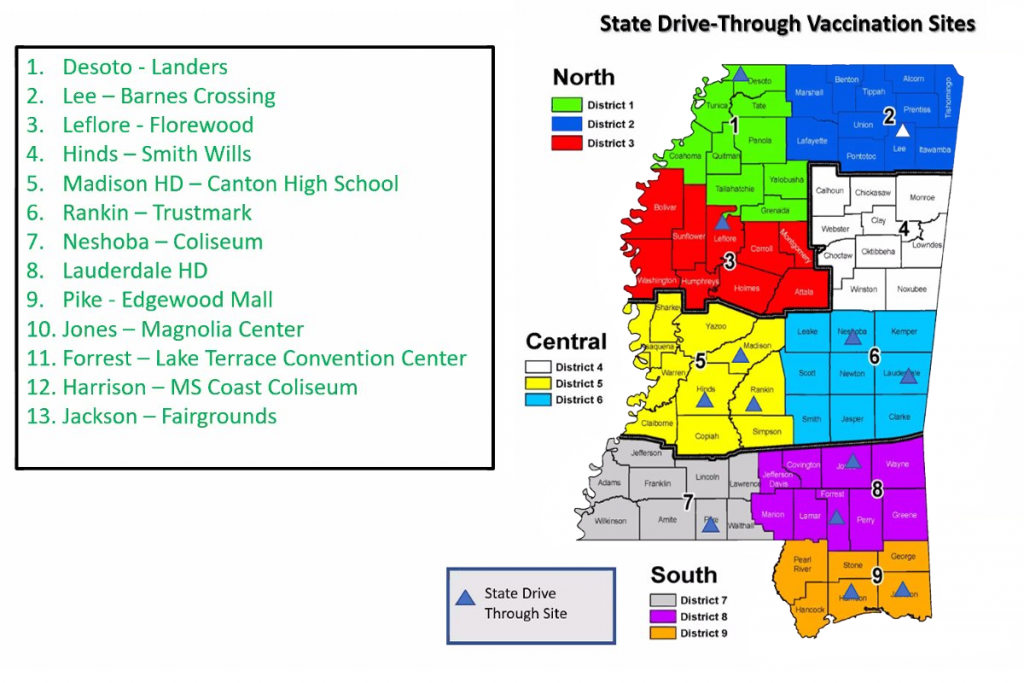Adolescents aged 12 to 15 are now approved for the Pfizer COVID-19 vaccination, which expands access to the two-shot mRNA vaccine to more than 160,000 young Mississippians. The Mississippi State Department of Health announced the expansion at a press event today after the Centers for Disease Control’s Advisory Committee on Immunization Practices approved the decision on Wednesday.
Liz Sharlot, MSDH communications director, provided the precise demographic data at the start of the press event. The access expansion will affect 164,619 preteens and teens, a significant portion of the state’s under-18 population, and the last remaining hurdle for full vaccine approval to the entire population of the state.
Adolescent vaccinations are available at any state-run vaccination site using the Pfizer vaccine, as well as private providers. Parents must accompany minors to the vaccination sites, and drive-through appointments are available at covidvaccine.umc.edu starting tonight at 6 p.m.
Vaccinations for children, just as for adults, are entirely voluntary. MSDH leadership expressed their commitment to expanding vaccine access to Mississippi children through community partnerships and pediatricians’ offices.
State Health Officer Dr. Thomas Dobbs warned of a small uptick in new cases today, as an encouragement for Mississippians to seek vaccination.
“Although Mississippi is doing well … we still have a large part of our population that is unvaccinated,” Dobbs said. “You’re likely either to get the COVID vaccine or the COVID virus. You’re a thousandfold better off getting the vaccine than the virus.”
State Epidemiologist Dr. Paul Byers used CDC data to project the full scope of COVID-19 infections since the beginning of the crisis, explaining that estimates place the seroprevalence (detection of COVID-19 antibodies, which the body generates and keeps after fighting off the virus) level nationwide at 30%.
“(In Mississippi) we’ve reported about 315,000 cases of COVID-19,” Byers said. “But if you use that seroprevalence rate, we’re actually looking at an estimated number of cases in the range of 894,000.”
Byers also announced a new initiative to keep the state’s schools open and free of lockdowns from COVID-19 outbreaks. Through CDC funding, voluntary COVID-19 screening of children will be available in Mississippi’s schools.
“Schools throughout the state (will) offer voluntary testing to any asymptomatic individuals. It’s screening, really, on a routine basis in order to try and identify individuals who may be infectious that haven’t shown symptoms yet—so can remove them from the school setting and prevent transmission.”
The availability of rapid testing in Mississippi’s schools, even to a small number of volunteers, could identify clusters of transmission before they spread to the broader community, even without pronounced symptoms.
Byers stressed that screening would not be mandatory for anyone: “This is a voluntary program. It’s voluntary for the school districts, as well as voluntary for the students and teachers.”
Homebound COVID-19 Vaccinations
“We have a large number of people 65 and older who are still unvaccinated. Given the high rate of death, hospitalization and illness … it’s of paramount importance to still get vaccinated,” Dobbs said.
Byers highlighted the strides the state health agency has made in providing access to Mississippi’s most vulnerable communities. “There are no obstacles to getting vaccinated now. We have developed with (Senior Deputy and Director, Office of Health Protection) Jim Craig plans to get vaccines to our homebound Mississippians as well.”
Craig encouraged any Mississippians incapable of reaching clinics or drive-through vaccination sites to “e-mail COVIDHomebound@msdh.ms.gov. Send us your information and we’ll contact you and make arrangements for a vaccination. Or you can call our COVID hotline at 877-978-6453.”
In a May 10 interview with the Mississippi Free Press, Craig explained the ways the state health agency is expanding beyond the drive-through clinics to close access gaps in the vaccination effort.
In addition to the COVID-19 Homebound vaccinations, MSDH is continuing to seek out additional community partnerships to provide vaccinations at events and community gatherings. “These pop-up vaccination sites are local, short-term vaccination clinics for areas where the coverage is low,” Craig said. “We’ve been from Tunica all the way down the river to Wilkinson County.”
Craig has a map that helps to identify some of the causes for low vaccination rates in areas of the state. The Centers for Disease Control call it the Social Vulnerability Index. The CDC defines social vulnerability as a lack of flexibility in the face of crisis, along axes such poverty, transportation access or overcrowded housing.

Nowhere in Mississippi is social vulnerability more pronounced than the Mississippi Delta, a measure of economic and health precarity that visibly tracks along many predominantly Black regions of the South. Craig has his eye on the Delta in particular, an area he says could benefit from additional vaccination events at churches and other community gatherings, rather than the formal drive-through and walk-in locations.
“We’re always searching for partners to do vaccine events. Most of them to date have been civic organizations and churches,” Craig said. “As time goes on, I imagine we’ll end up with some events that are really focused on communities getting together.”
Laurie Bertram Roberts, co-founder of the Mississippi Reproductive Freedom Fund and executive director of the Yellowhammer Fund, warned that homebound COVID-19 vaccination access must be extended beyond formal lines of home health care, which she explained do not cover all affected individuals.
“For many people who are in the disabled community, we don’t get services through home health-care providers,” Bertram Roberts said. “Especially in Black and Brown communities where we may not have money for private care, (but) we may not qualify for official home health care, right? We may not even be on Medicare or Medicaid. If you’re not on disability, you’re not gonna qualify for those services. It’s critical for us to have access.”
Craig agreed, and said MSDH is looking beyond the formal lines of communication to find those who fall through the cracks. “Home health agencies have been a great partner, don’t get me wrong, but (Bertram-Roberts) is right, they’re not fully inclusive of everyone who’s homebound,” Craig said. “So churches and local leaders who can reach out to those individuals have been another great conduit for us to try and increase the number of homebound vaccinations.”









